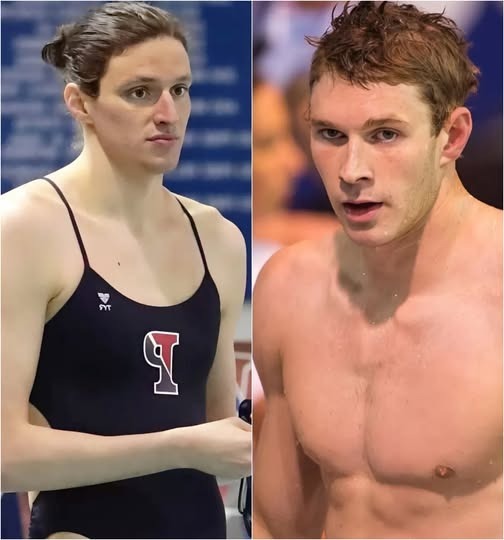Lia Thomas — the swimmer who sparked a global conversation about transgender athletes — will not be allowed to compete in the women’s category at the 2025 Olympic Games.
Instead, she’ll be required to race in the men’s division.
The ruling has ignited intense debate, drawing cheers, outrage, and a flood of questions about what fairness in sports really means.
🌊 A Decision That’s Making Waves
This isn’t just another policy change — it’s a turning point in how international sports view gender, identity, and competition.
For some, it’s a long-overdue step toward protecting women’s sports. For others, it’s a painful reminder that inclusivity still has limits.
One thing’s for sure: the conversation is louder than ever.
❓ Why Was Lia Thomas Barred from the Women’s Category?
The decision comes from international sports officials who say that despite following hormone therapy protocols, Thomas’s physical advantages from male puberty remain a factor in performance.
“Fairness for all athletes is our top priority,” said one official. “We’re still learning what that truly means when it comes to transgender inclusion.”
So, despite meeting the rules set by governing bodies in previous years, the Olympic committee has taken a stricter stance — one rooted in evolving science and growing public pressure.

🎙️ Thomas Responds: “This Is a Step Backward”
In a public statement, Lia Thomas didn’t hide her disappointment.
“I’ve trained hard, followed every rule, and competed with integrity,” she said. “This decision feels like a step backward for inclusivity in sport.”
Her message struck a chord with many in the LGBTQ+ community and beyond — especially those who fear this could set a precedent of exclusion rather than evolution.

🤔 Even Male Athletes Are Split
The ruling hasn’t just divided fans — it’s sparked debate among male athletes, too.
Some are concerned that requiring trans women like Thomas to compete in men’s events after years of hormone treatment is also unfair.
“She’s not the same athlete she was before transitioning,” one swimmer said. “This is more complex than just chromosomes.”
Others argue that upholding categories based on biological sex is the only way to preserve competitive integrity.

👏 Female Athletes Say It’s About Time
On the other side, many female athletes have welcomed the ruling.
They say it’s about protecting years of hard work and ensuring a level playing field for women who’ve trained their whole lives under strict biological limits.
“This isn’t about hate. It’s about fairness,” one Olympic hopeful said. “Finally, our voices are being heard.”
To them, the decision is not exclusion — it’s a long-awaited validation.

🔮 What’s Next for Trans Athletes in Global Sports?
Lia’s Olympic dreams may be paused, but this isn’t the end of the story.
Sports organizations around the world are now being pushed to define what fairness really looks like — and how transgender athletes fit into that picture.
Some propose creating a separate category. Others warn that doing so could increase stigma and reduce inclusion.
But with the spotlight shining brighter than ever, change is inevitable.

🧭 Final Take: A Pivotal Moment in Sports History
This is more than one athlete’s story — it’s a flashpoint in a larger conversation about gender, fairness, and who gets to compete on the world’s biggest stage.
Lia Thomas’s exclusion from the 2025 Olympics might be the start of something bigger — a rewriting of the rules, and perhaps a redefining of what fairness in sports truly means.
This story isn’t over. And neither is the fight.





